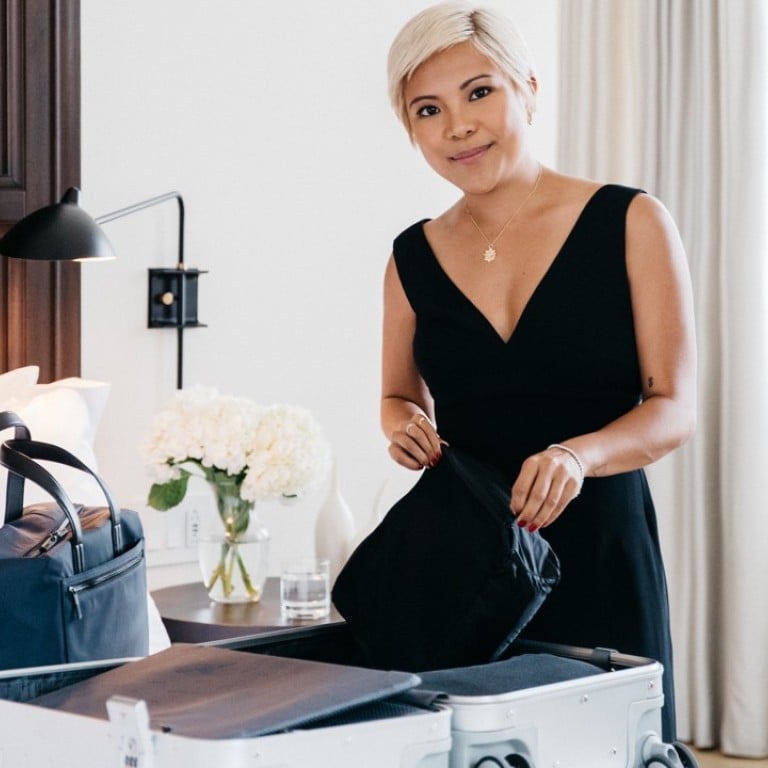
Start-up that’s making the case for exciting luggage and on a journey to becoming the Nike of travel
Filipino-American Jen Rubio and Steph Korey knew nothing about luggage when they had the idea for Away. In two years they’ve sold 500,000 bags and raised US$80 million in funding. Now they want to be a global travel brand
On a rainy day during this month’s New York Fashion Week, as the fashion set was rushing from show to show, the young team at luggage company Away was wrapped up in a move from an office on Lafayette Street in downtown Manhattan to a much larger space in nearby SoHo.
The move reflects the remarkably quick growth Away has experienced. Founded in 2016 by Jen Rubio and Steph Korey, who met while working at online eyewear retailer Warby Parker, Away has already sold more than half a million suitcases and raised over US$80 million in funding.
Celebrity dermatologist Vicki Belo on making everybody beautiful
Like so many direct-to-consumer companies, Away originated from a gap in the market that Rubio and Korey wanted to fill. After Rubio’s suitcase broke on one of her trips, it occurred to her that luggage was a category lacking any excitement and decided to team up with Korey, who by then had also left Warby Parker and earned an MBA, to come up with a brand to meet the needs of millennial travellers.
Rubio, the de facto face of the company, was new to the world of start-ups when she conjured up Away, but she had a knack for developing brands. Born in the Philippines, Rubio immigrated to New Jersey with her family when she was seven. Her parents expected her to become a lawyer but she soon became disillusioned with a career in law.
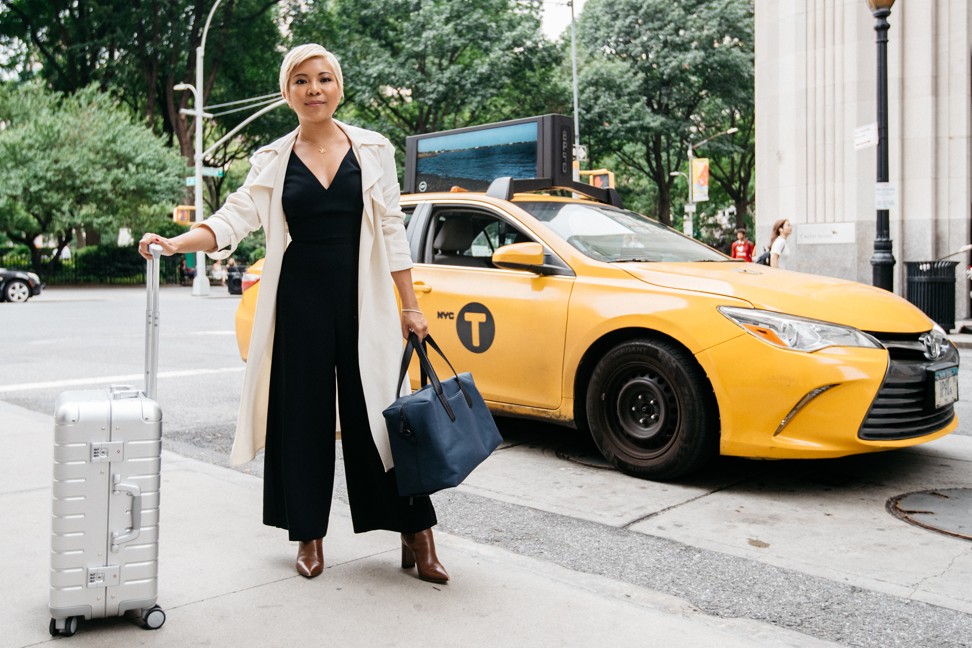
“If I’d had a completely American upbringing … I would have thought, ‘you can be a business owner, an entrepreneur’,” says Rubio when we meet at the old Away office.
“But that wasn’t something we ever talked about in my family. My family was more like, ‘you’re going to go to law school’. So looking back I think that I definitely had some entrepreneurial drive in me but was mentally trained to go down a different path.”
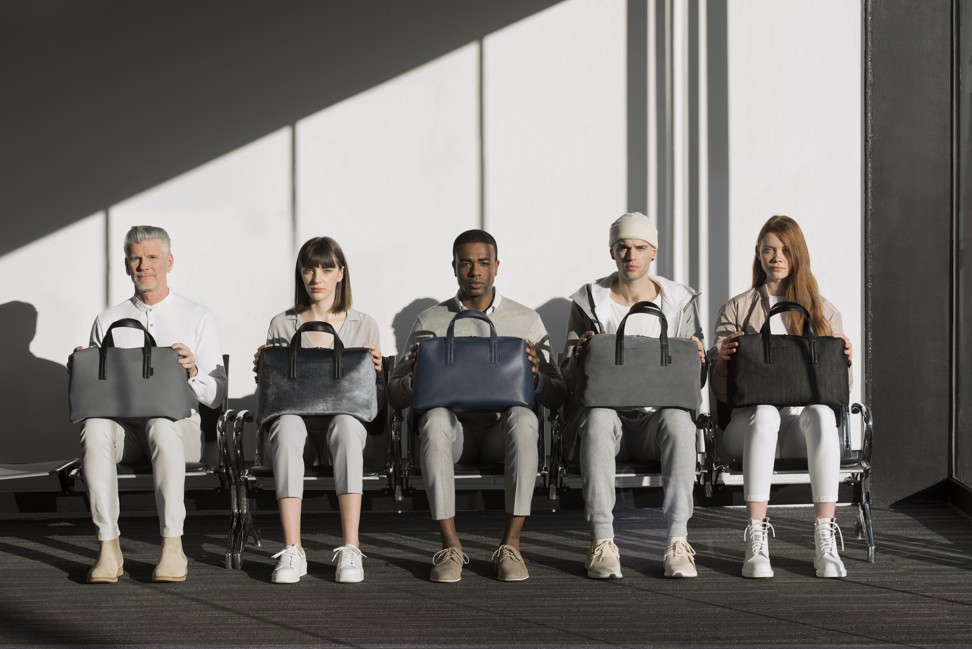
The start-up path the duo have chosen has become almost a cliché among millennials seduced by the idea of making it big and creating the new Warby Parker, Glossier or Casper, all direct-to-consumer brands that have grown at breakneck speed in recent years.
“I think that there’s this actual generation – my age group – that’s really excited about the myth of ‘the founder,’” says Rubio. “My co-founder went to business school and everyone she met was like, ‘I want to start a company’, and she would ask, ‘what kind of company?’ But they had no clue. It’s really hard to start a business.
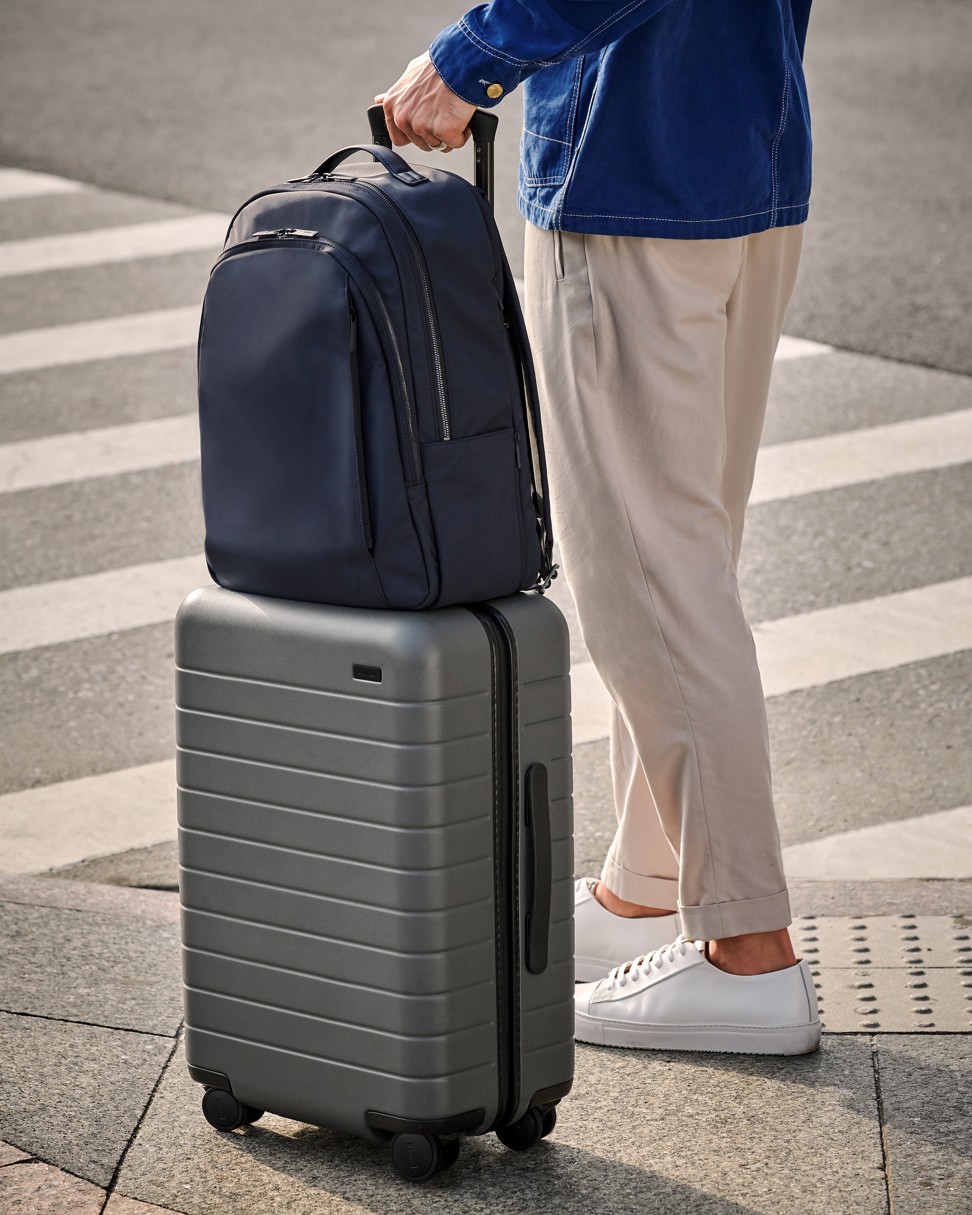
“We were really passionate about it and saw a problem and wanted to solve it, but if you wait there with a piece of paper just wanting to start a company, it’s going to be very hard to find something that you care about and actually see it through.”
While founding a start-up may seem like fun (Rubio is the first to admit that social media plays a role in this misconception), it takes an incredible amount of determination, stamina and business acumen to make a dent in such a competitive market, not to mention the skills needed to pitch your company to investors and raise enough funds to scale growth. Add to that the sexism rampant in the start-up world, and you’ll understand what Rubio and Korey have had to deal with.
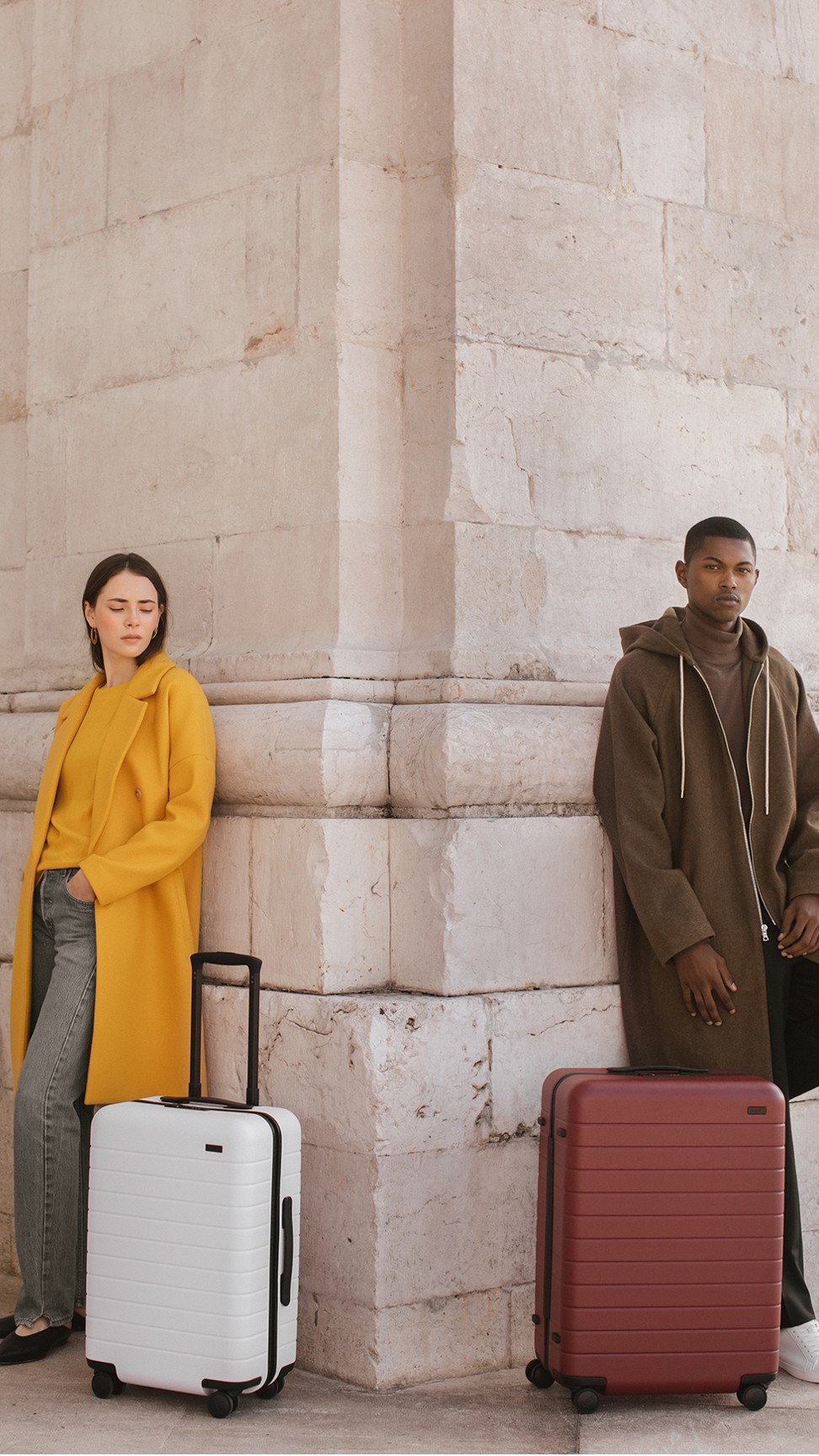
“It’s really hard for a lot of women because investors often believe that they’re not able to execute,” says Rubio. “If you think of all the female entrepreneurs highlighted in the media, it’s an amazing thing, but think of all the women you never hear of. It’s great that our stories are being told but there are so many women who can’t even raise seed funding, maybe because they don’t have the right connections or they don’t know how to meet with investors and how to pitch.”
If you think of all the female entrepreneurs highlighted in the media, it’s an amazing thing, but think of all the women you never hear of
Articulate, smart and savvy, Rubio is the type of start-up founder investors dream about, and she believes her lack of experience in the luggage field has actually been a plus. If the duo already had the knowledge, they wouldn’t have asked the right questions or figured out how to get where they wanted to be, she says.
“That’s why we don’t hire people from other luggage companies, because we’re looking for the best way to do something, not just how it’s done.”
Though at first sight Away luggage does not look very different from any other, there’s more to it than meets the eye. The suitcases are well designed, affordable, sturdy and practical, but they also have features such as an ejectable battery that charges devices, a hidden laundry bag and a clever compression system.
Away’s products – which include items such as backpacks and dopp kits (toiletry/cosmetics bags) – are part of a much bigger story, or mission, as Rubio sees it, rooted in her belief that luggage is often an afterthought.
“We wanted to create a well-designed product that’s beautiful, and create a brand around it with amazing customer service, and a passion for storytelling and travel,” she says.
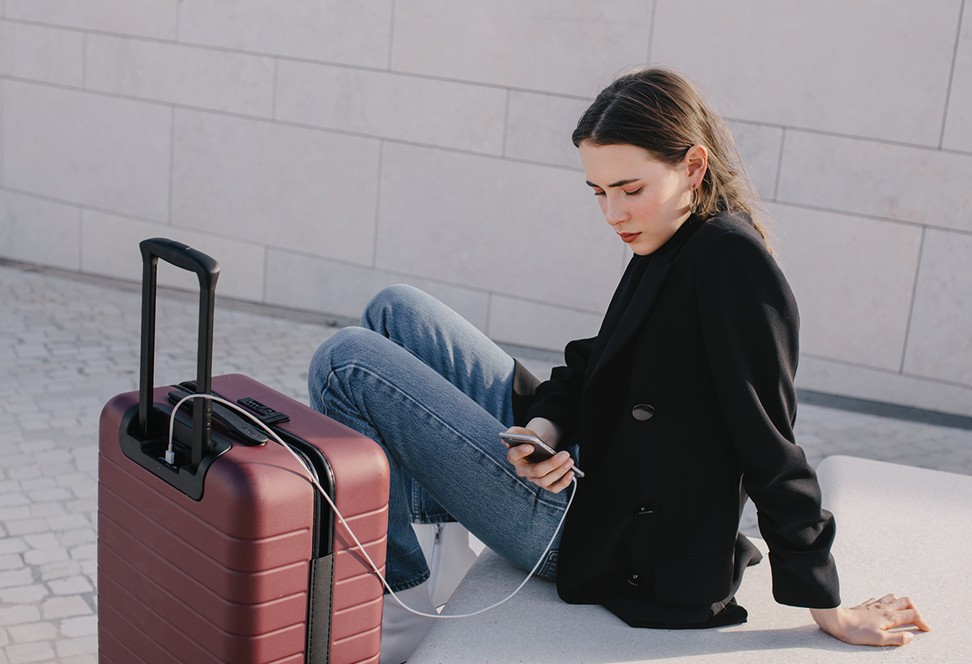
“When you buy a Samsonite, you’re not emotionally connected. They just make the bag you use. We wanted to create the perfect version of this product but also build this whole world around it. One where people would feel good getting that product from us and because we’re direct to consumer, we’re aiming for Rimowa [premium luggage brand] quality but for a third of the price.”
The company, which has five bricks and mortar stores, does not ship to Asia yet, but the region is definitely on Rubio’s radar, not least because it represents the fastest-growing travel market in the world.
“We would be stupid not to think about it,” says Rubio. “There’s huge opportunity in China and the rest of Asia. We recognise the potential, and also that we don’t know a lot about the region and that the things that work here won’t work there.
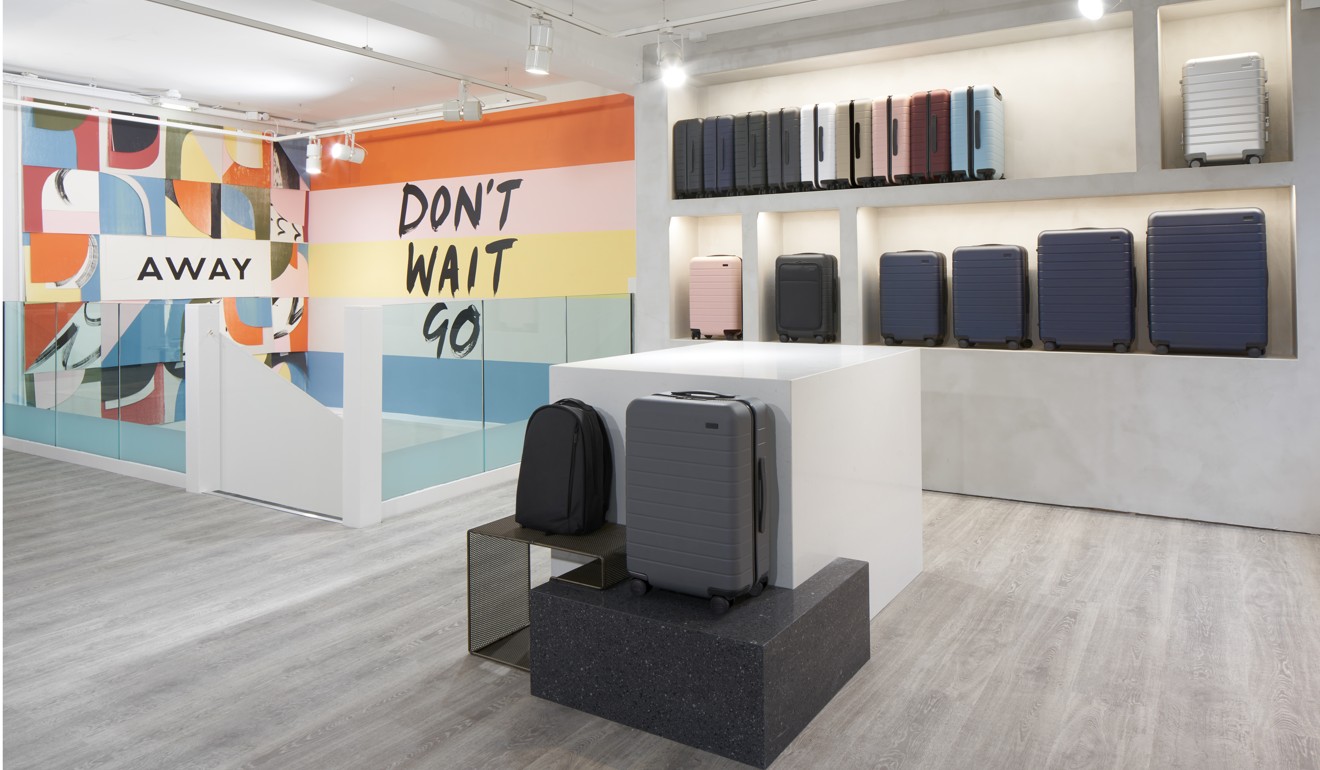
“To be a truly global brand, you have to understand that you can’t just be a US company that opens in a bunch of other places. That’s when it does not work. You need to understand how people shop and act … the way people shop and behave in China is different from here.”
Global growth is vital for a company like Away for a variety of reasons. Unlike items such as fashion or jewellery, people don’t buy luggage on a whim, and there is a limit to just how many suitcases you need. Americans are also notoriously not very well travelled (according to the US State Department, only 36 per cent of Americans own passports), something that Rubio recognises.
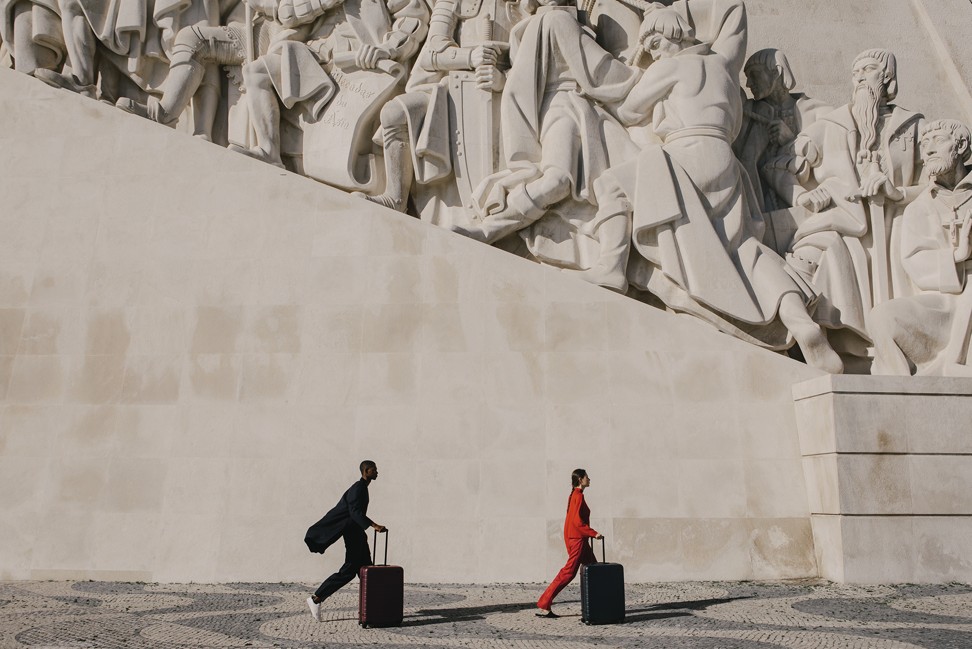
“The reality is that not enough people travel, or even have a passport, but we’re promoting the act of travelling even if it’s just going on a train somewhere and having openness and curiosity,” says Rubio. “Our long-term vision is to solve all travel-related issues, from hospitality to airlines and travel services, and that’s what we’re trying to promote as a brand: inspiring people to travel and explore and discover.
“I know it’s a big ambition when you just start with a luggage brand, but we have seen that when people have this bag at an accessible price point they get excited about packing and travelling.”
While Rubio is as American as they come, she is still close to the Philippines, and attributes her drive in part to her Asian roots.
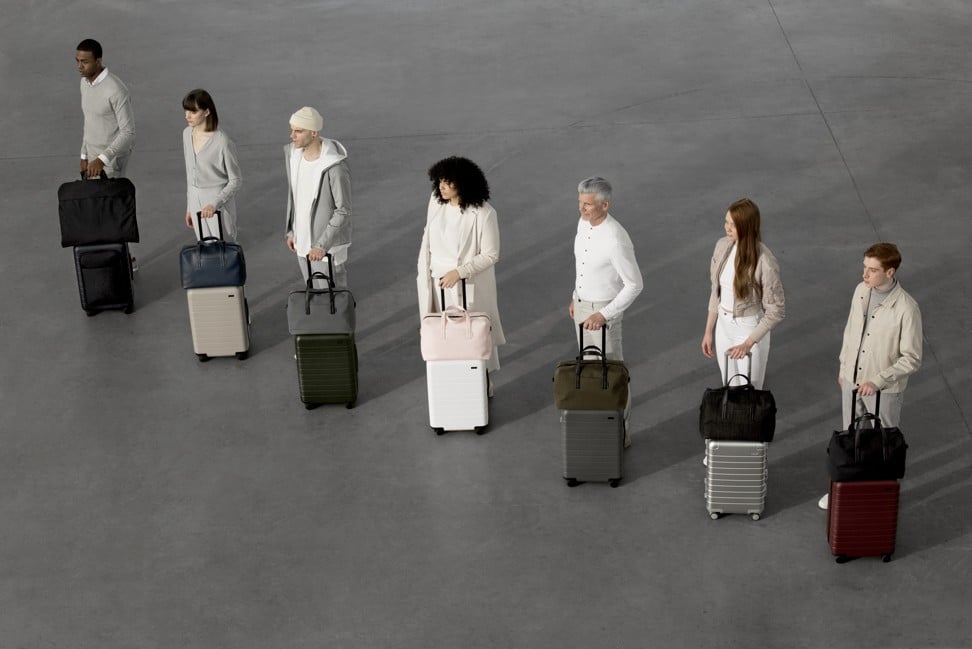
“My background is interesting because you don’t see many Filipino entrepreneurs in the US,” she says. “I moved here when I was very young but there’s a lot of influence from having grown up in a Filipino family, like the humility and making things accessible and taking a lot of pride in your work … We moved so many times when I was young so having an understanding of different cultures helps, because people who just grow up in the US don’t have that.”
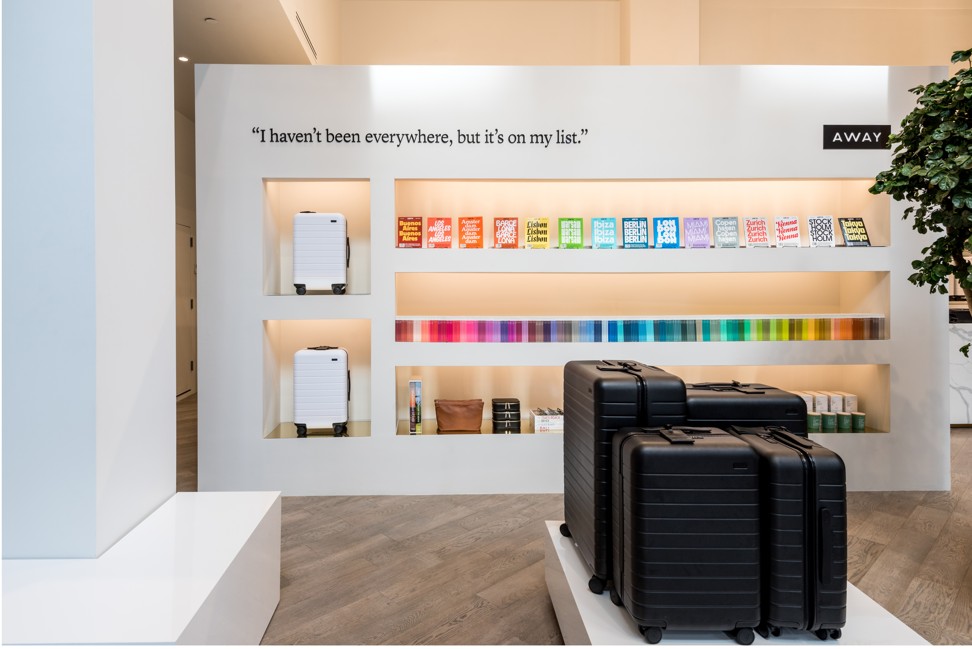
Away is a breath of fresh air in the staid luggage market, and stalwarts of the industry such as Rimowa and Tumi are paying attention. In recent months both brands, LVMH-owned Rimowa in particular, have been emphasising a lifestyle element in their marketing efforts, which can only mean that they’re watching the new kid on the block.
The most difficult chapter in the early stages of a company like Away is the transformation from a start-up to a fully fledged global brand.
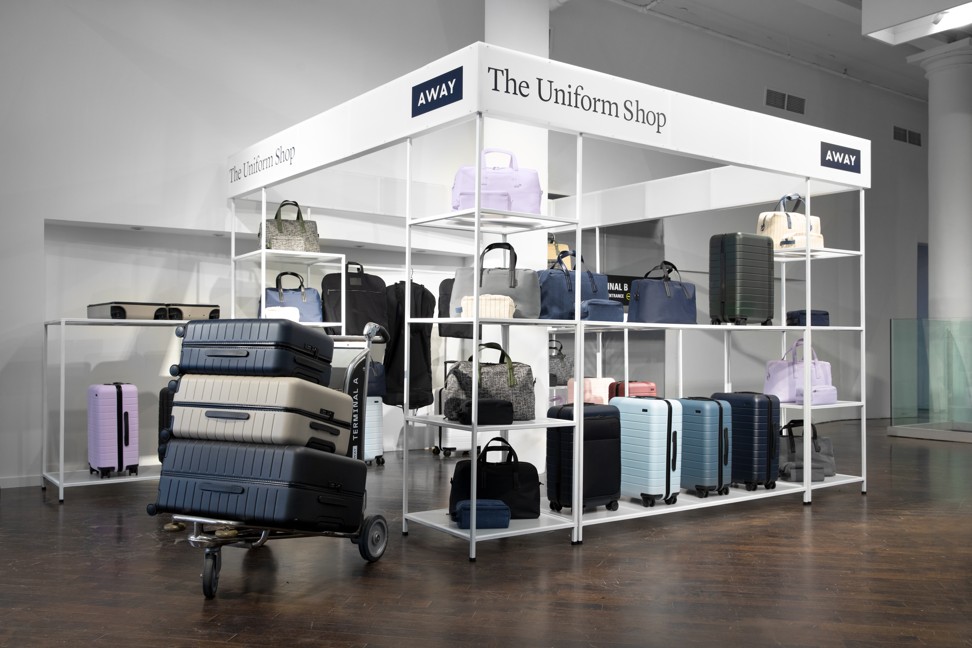
“We’re going through this transition from wanting to be a top-tier, direct-to-consumer brand to being a top-tier global brand like Nike or Lululemon, which were able to stay true to their integrity and reach massive global scale,” she says.
“We’re really proud of what we’ve accomplished as a start-up, but at the stage the business is right now, we’re looking at much bigger companies.”
From Birkin bags to crazy collectibles, luxury vintage auction has them all
If Rubio’s ambition and determination are any indication, it will be a smooth, and exciting, ride to the luggage belts of major airports around the world.

